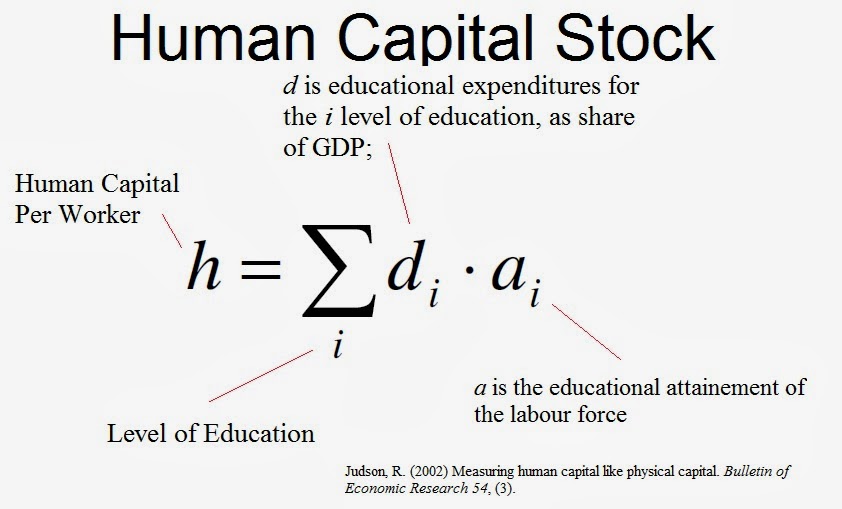Understanding how human capital is utilized in
society and how that human capital is measured is important for understanding economic
underpinnings. A study by Olimpia Negu
delves into comparing human capital attainment throughout 28 OECD countries and
the market benefits of that capital (2012). This measurement helps to show
which countries have the highest human capital development. It may also start to
highlight where economic growth is most receptive.
Before analysis it is important to understand
what human capital actually is. Human capital is complex and hosts concepts
such as biological capital, educational capital, social skills, and health
capital (Neagu, 2010). The total human being and their ability to be productive
in the environment entail their ability to be productive. Laroche et. al. (1999) indicates that human
capital has some generalizations:
-Non-tradable good embodied in humans.
-Individuals are subject to human capital decisions
made by parents, society, and government. Individuals who make their own
choices internalize those choices.
-Human capital is qualitative and quantitative.
-Human capital can be used for multiple purposes and
is transferable among businesses.
Because human capital
can be complex and difficult to measure across nations most researchers use
time in education. There is a basic assumption that education raises the
ability of people to compete and be productive on the market. The more
productive people in a nation the greater the national output.
Collective productivity
turns into the Gross Domestic Product (GDP) of the nation and can be broken down
into the GDP of the individual. The cost of education is important in determining
the effective value of that human capital. Judson (2002) expanded on previous
calculations to create measurements of human capital per worker (h) based upon
cost of education:
Human capital can be
studied and used as an imperfect measurement across nations. These measurements
are important because they can impact whether or not a society even has the
potential to grow. The authors found
that the human capital value of 28 OECD countries between 1999-2008 were led by
the U.S., Australia, and Austria and trailed by Mexico, Czech Republic and
Hungary. The market leading nations had economic value of their population's
skills and abilities.
Laroche, M., et. al. (1999). On
the concept and dimensions of human capital in a knowledge-based economy
context. Canadian Public Policy - Analyse de Politiques, 25(1)
Judson, R. (2002) Measuring human
capital like physical capital. Bulletin
of Economic Research 54 (3).
Neagu,
O. (2010). Capitalul uman _i dezvoltarea economic_, Cluj Napoca: Editura
Risoprint.
Neagu,
O. (2012). The market value of human capital: an empirical analysis. Economic Science Series, 21 (2).

No comments:
Post a Comment